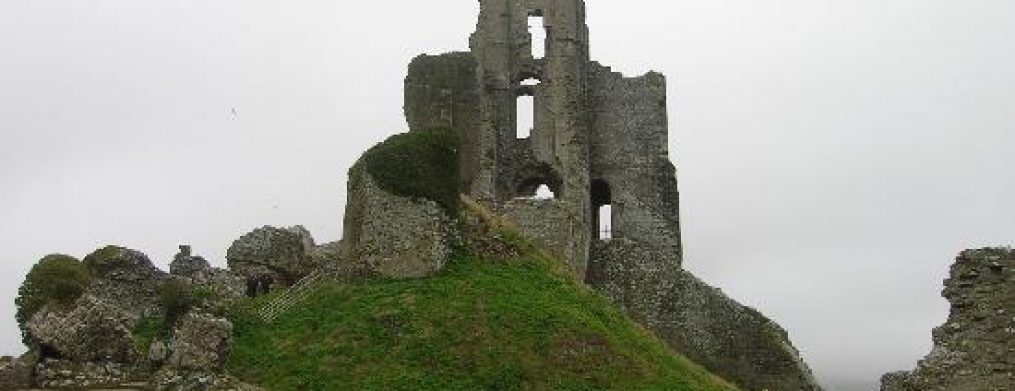When I read ancient tales like Beowulf or the Odyssey, I like to consider the challenges faced by translators. It’s not simply replacing one word for another; in some cases, it’s also preserving the rhythm, often at the expense of what we’d consider ‘standard grammar’. Rhythm is a critical component of memorization, which was essential for stories that passed from mouth to ear, rather than by written page.
I kept that in mind when I wrote this poem in 2005. I put myself in the mindset of a translator struggling to capture the flow of some ancient chant. To me, it’s a combination of science and art, with the latter given preference. You’ll hear similar things in modern music, when the lyricist chooses rhythm over the rules taught in high school English.
Without further preface, my Celtic Christmas poem:
Come, my dear friends and do hearken
And sit by my fire for awhile.
For I am about to regale you
Of the Scourge of the Emerald Isle.
Colin his mother did name him
Son to his father called John.
Black was his hair like a raven
With eyes that were bright as the dawn.
A rebellious young Celt here was he
Never he showed his restraint
And soon did he part from his parents
To leave them to pray to their saints.
Colin did move town to town then
Flashing his notorious smile.
And soon all the Gaels had heard talk
Of the Scourge of the Emerald Isle.
Riches this young man did want,
And cleverness gave him reward,
By lying and stealing and grifting
And oft did he speak with his sword.
And thusly did one day he find him
Walking down snow-covered trail.
He chanced ‘pon an old Druid graveyard
And sought refuge out of the gale.
Across snowy heather he saw her
Wrapped in a gossamer gown.
She stood under green bedecked oak leaves
Looking up as the tree did look down.
A finely dressed Druid, he thought her
Collecting the green mistletoe.
Sublime was her visage, but colder
Than the clouds that delivered the snow.
No blizzard enveloped the oak tree
And whiteness but dusted the ground.
When seeing her face he did love her
And moved forward to say so aloud.
A cruel laugh did then break the silence
And ruin the mood of the scene.
A black band of thieves had been lurking
Their intentions horrid and mean.
They then moved to-ward the young lady
Desirous of all that she had
Long had it been since they’d eaten,
And hunger had driven them mad.
The Scourge before now would have left her,
His heart black and dirty and cold.
But there in the dark of his innards
Beat a heart there of imperfect gold.
Then did their leader assail her
With fell, lustful thoughts in his head.
Snake-like the Scourge he did strike him;
Cleaved in half, then the leader fell dead.
The band then did set upon Colin,
From their mouths came a murderous wail.
But the Scourge met them first with a vengeance
And with sword and with tooth and with nail.
Stroke after stroke did his sword make
Until ev’ry last one did lie dead.
Redeemed then was Colin, but dying,
His side stained a hideous red.
And Faye, as her mother did name her,
Saw her savior collapse to the ground.
Ran to him did she while praying
And cried at the blood that she found.
In the frost of the ground did she hold him,
And then knew her love as she cried.
He saw her pale face ‘neath the mistletoe;
Then kiss him did she as he died.
And down through the ages we’ve passed now
The tradition of the mistletoe kiss.
Without care or knowing or ‘membrance,
Of the love lost in Emerald mist.
So, remember you lads and you lasses,
As you kiss on this fine, wintry day.
That the mistletoe hanging has history,
And the lost love of Colin and Faye.
I thank you, my friends, for your ears,
And now you have stayed for awhile.
Return to the outdoors and think of ‘im:
The Scourge of the Emerald Isle.
© Michael Wallevand 2005
I profess no skill in poetry, though I’ll admit I do enjoy writing things like this (even if I don’t know anyone else who does).
Always write for yourself first.
–Mike
Enjoy what you just read? Leave a comment or like the post and we’ll ensure that you see more like it!
© Michael Wallevand, December 2017

Mike, I remember the first time I read this. Whilst plowing through my, er, “archives” (a.k.a. “the salt mines”), I chanced to read it again—not quite sure at which time I was more impressed by what you had created.
Now, finally, another “first”: I have jumped onto your “Lost Royals” commentaries at last, enjoying divers topics, not the least of which is the one on proofreading. Seriously, apple and tree are closer than you might think—or wish for (or is it “…for which to wish”?—kind of like the flow of that….)
At any rate, this past Thursday, I was interviewed by KVRR with regard to my Viet Nam service and my survival guilt poem. The TV person inquired about how long I had worked on the six quatrains (since 1994!) and how I had determined when I had finished. I commented in so many words that works of art are never finished until they HAVE to be finished, constraints demanded by either one’s stomach or by one’s patron—which may be conjoined. Perhaps you are aware of other limiters. At any rate, the current piece has since suggested other lateral and subsequent versifications which, in time taken, will evolve out of a once-disturbed mind. —Dad
LikeLike